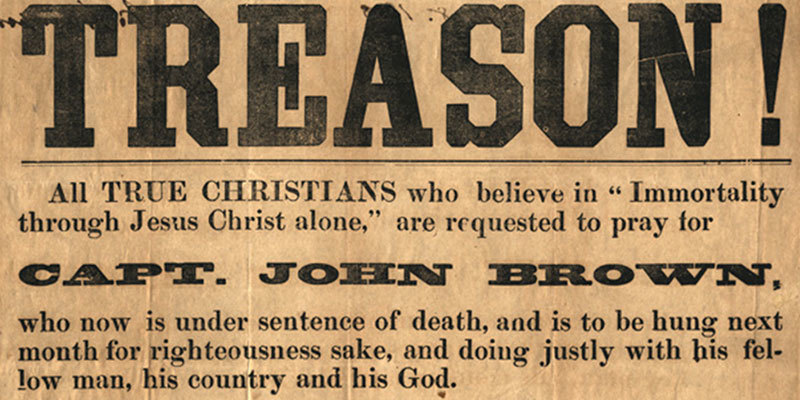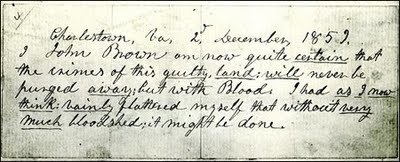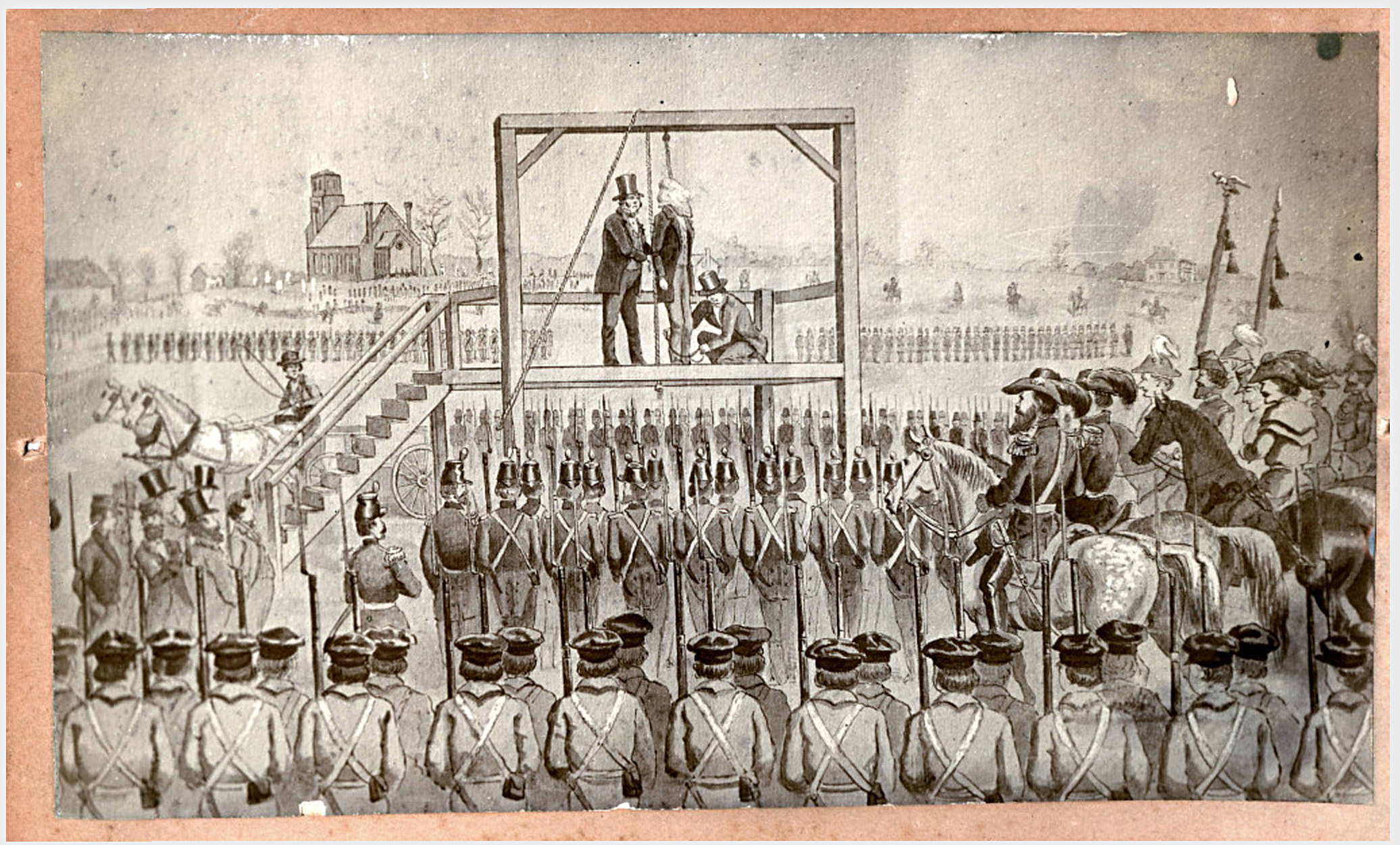- About
-
Student Exhibits
- Rebellions Abroad! — by Travis Heeren
- A Glossary of Black Women in Rebellion — by Kaylor MacLaughlin
- Rumored — by Serena Morgan
- Fragmented Individual Acts of Rebellion — by Twila Neiwert
- John Brown, Harpers Ferry, and the Media — by Bessie Rudd
- Louisiana: Rumors and Insurrections — by Stephanie Smith
- Revolutionaries & Art in Black Cuban Uprisings — by Jiesha Stephens
- Mapping Rumored Rebellions in the South — by Jalen Thompson
- Black Asylum and Sovereignty — by Adam Vernon
- Days in a Demi-Decade: Miscellaneous Rebellions in 19th Century African American Newspapers (1856-1860) — by Hannah Zeller
- Summarily Punished
John Brown's Demise
After his conviction for treason, conspiracy against the state of Virginia, and murder, there was some support of John Brown and what he had attempted to do. People believed John Brown would die a martyr for his actions in trying to begin a war which Brown believed the enslaved blacks would join in order to gain their freedom and the freedom for their loved ones still in bondage. Six of Brown's supporters were also captured, then executed while another five escaped and were never captured, including another of Brown's sons, Owen. Three of those five would later die in the Civil War.
Before he was hanged, Brown gave a note to the executioner which says, "Charleston, VA, 2 December, 1859. I, John Brown, am now quite certain that the crimes of this guilty land: will never be purged away; but with Blood. I had as I now think: vainly flattered myself that without much bloodshed; it might be done" (washingtonpost.org).
There are accounts that Brown was somber, showed no fear or anger, as we was led to the gallows and prepared for his hanging. One witness who would meet his own demise later was John Wilkes Booth. Once Brown was hanged, his body was left there for twenty minutes until a battery of doctors each came to listen to his chest and check for a pulse. Each one concured John Brown was dead.


